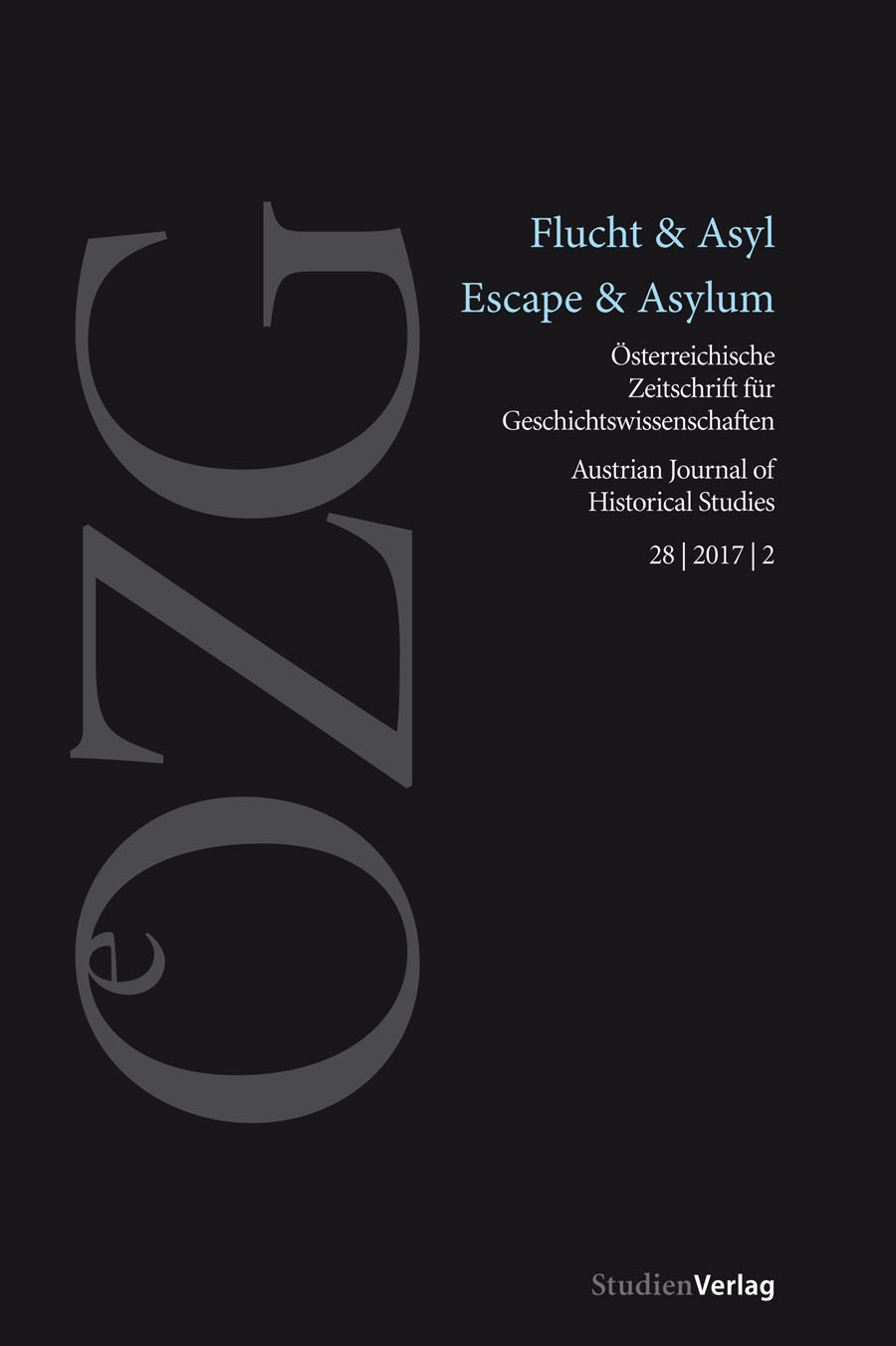Re-Marginalisierung der palästinensischen Flüchtlinge?
Transformation von Wir-Bildern in der palästinensischen Gesellschaft im Westjordanland seit den 1970er Jahren
DOI:
https://doi.org/10.25365/oezg-2017-28-2-4Schlagworte:
Palestinian Refugees, West Bank, Middle Class, Biographical Research, First Intifada, Historical Generation, Arab Youth, Established-Outsider RelationsAbstract
Abstract: This article explores concepts of belonging for Palestinian refugees and asks how they shape patterns of interpretation, we-images and life histories. The article discusses the results of a research project in Israel and the West Bank conducted in the period 2010 to 2015 on descendants of Palestinians who fled or were expelled in the 1948 Arab-Israeli War. The findings display a generational divide. For members of the second generation of Palestinian refugees in the West Bank, the sense of belonging to the historical generation of the first Intifada is the main factor influencing their experiences and we-images. For the third generation of refugees, however, their refugee background tends to be increasingly important. These generational differences are intertwined with the formation of a new urban middle class in the West Bank a%er the Oslo Accords and the creation of the Palestinian Authority in the 1990s. This group formation connects to a (new) marginalisation of Palestinian refugees, especially those living in camp areas. Generational differences regarding we-images are thus connected to shfting processes of established-outsider relations in the Palestinian society of the West Bank.


